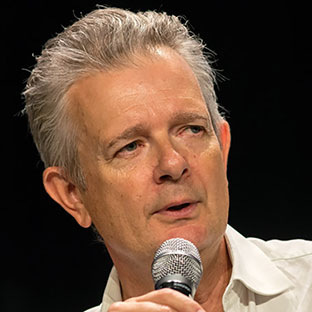At the end of 2019, a tiny organism tens of thousands of times smaller than a grain of sand crossed a species barrier in Wuhan, China.
The organism – strands of RNA inhabiting the blurred margins of what we consider to be life – began to replicate in a human host, likely a shopper or worker in Wuhan’s seafood and animal market.
Three months later that miniscule filament of almost-life – now called 2019-nCOV – has gone global. By Feb 23rd there were 78,781 reported infections and 2,462 deaths in 31 countries. Moderate guestimates suggest 50 million people may die. We are staring down the barrel of a lethal pandemic. So how should we respond?
In the absence of a vaccine or treatment, containment is the only viable option. Slowing the spread buys precious time. Health services are less likely to be overwhelmed, research into effective vaccines and anti-virals gets breathing space. If 2019-nCOV behaves like seasonal flu the arrival of spring will also help.
But along with the staggering practical challenges of slowing the spread stand serious ethical questions.
Are responses to coronavirus proportional?
First, proportionality. Consider the situation in China. Wuhan and its neighbouring cities – more than 50 million people – are in lockdown. The liberty rights of a province with a population approaching the size of the UK are constrained.
For such measures to be ethically justifiable several things must hold:
- It must have a reasonable chance of slowing the spread.
- The constraints on freedom must be proportionate to the threat – and liberty restrictions the minimal necessary.
- Reciprocity is critical: if people are held in isolation, their needs must be met – survival needs obviously, but also needs for information and safe communication. Compensation should be paid if wages are lost.
China is the epicentre of the outbreak. Its population is familiar with a strong government. All things considered the measures designed to slow the virus (travel bans, quarantine and isolation) seem broadly proportionate, bearing in mind information about the virus is less than perfect.
But with the genie out of the bottle, with the virus global, there is more at stake than the liberty rights of public-spirited Chinese. With global markets in free fall and community transmission in the UK only a matter of time, what should happen now? What should we do here?
The ethics of social distancing in response to coronavirus
Without available treatment, as we have seen in China, the main public health tool is social distancing. This involves techniques to limit the spread of the virus through reducing personal contact.
At the more draconian end lie quarantine and isolation. The former separates people to see if they develop the disease. The latter separates the sick from the ill. Less draconian are bans on public gatherings, school closures, travel restrictions etc. England’s Chief Medical Officer has already said that once community transmission starts, these options will be on the table.
One of the inherent ethical tensions in public health is said to be between the public interest and individual liberty. Individual freedoms can be justifiably constrained where the public good is sufficiently strong. If the lives of 50 million people are at stake, social distancing looks justifiable.
But with global markets in freefall and warnings of reverse economic growth in China, the old distinction between private interests and public goods looks a little threadbare. This imminent pandemic reminds us of our interconnectedness.
School closure may seem innocuous, but for every child out of school, a parent is off work and a job is not done. Leverage that and entire economies may wilt.
Populations in the West are likely to be far less tolerant of restrictions – there is likely to be pushback against constraints on liberty. There are clearly complex and competing interests at stake.
For example, my mother is in her eighties. She has a chronic chest condition. I spoke to her on the phone recently. They are making plans for a time when the virus reaches their patch of North Dorset, casting some kind of cordon sanitaire around her, sitting it out for warmer weather.
The big ethical challenge with this pandemic is how to protect the vulnerable while permitting as much normal life – and economic activity – as possible.
This will require careful juggling, a demand for the best available data about the virus, agile responses to changing circumstances and clear, confident messaging from the government.
And although it is impossible to avoid the echoes of medieval plagues, of Biblical pestilence, it is hard to think of a finer image of modern interconnectedness: a shopper wanders through a market in China; three months later a small house in Dorset closes its doors.
Julian Sheather FRSA is an ethicist and writer, author of 'Is Medicine Still Good for Us?
He works for a number of leading national and international health organisations. Twitter: @greenparakeet1
Related articles
-
What will the transition to a new normal look like?
Matthew Taylor
The next few months won’t neatly divide into ‘the crisis’ and ‘after the crisis’. The transition period could be very long. We need to start thinking about how to govern it democratically and transparently.
-
Six ways Coronavirus might change our world
Matthew Taylor
Less business travel, extended employment rights, move towards Universal Basic Income, accelerate energy shift, strengthen state, and new ways of thinking about change.
-
How will the coronavirus affect the gig economy?
Will Grimond
An epidemic could have serious consequences for those in insecure work.




Be the first to write a comment
Comments
Please login to post a comment or reply
Don't have an account? Click here to register.